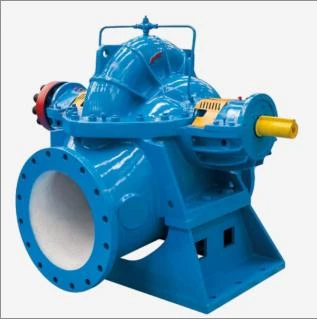Frisian
- Afrikaans
- Albanian
- Amharic
- Arabic
- Armenian
- Azerbaijani
- Basque
- Belarusian
- Bengali
- Bosnian
- Bulgarian
- Catalan
- Cebuano
- Corsican
- Croatian
- Czech
- Danish
- Dutch
- English
- Esperanto
- Estonian
- Finnish
- French
- Frisian
- Galician
- Georgian
- German
- Greek
- Gujarati
- Haitian Creole
- hausa
- hawaiian
- Hebrew
- Hindi
- Miao
- Hungarian
- Icelandic
- igbo
- Indonesian
- irish
- Italian
- Japanese
- Javanese
- Kannada
- kazakh
- Khmer
- Rwandese
- Korean
- Kurdish
- Kyrgyz
- Lao
- Latin
- Latvian
- Lithuanian
- Luxembourgish
- Macedonian
- Malgashi
- Malay
- Malayalam
- Maltese
- Maori
- Marathi
- Mongolian
- Myanmar
- Nepali
- Norwegian
- Norwegian
- Occitan
- Pashto
- Persian
- Polish
- Portuguese
- Punjabi
- Romanian
- Russian
- Samoan
- Scottish Gaelic
- Serbian
- Sesotho
- Shona
- Sindhi
- Sinhala
- Slovak
- Slovenian
- Somali
- Spanish
- Sundanese
- Swahili
- Swedish
- Tagalog
- Tajik
- Tamil
- Tatar
- Telugu
- Thai
- Turkish
- Turkmen
- Ukrainian
- Urdu
- Uighur
- Uzbek
- Vietnamese
- Welsh
- Bantu
- Yiddish
- Yoruba
- Zulu
Telephone: +86 13120555503
Email: frank@cypump.com
Dec . 11, 2024 10:19 Back to list
pipeline injection pump
Understanding Pipeline Injection Pumps An Overview
Pipeline injection pumps play a critical role in the transportation and distribution of fluids across various industries. These pumps are specifically designed to inject chemicals, additives, or other fluids into pipelines, ensuring smooth operation and enhancing performance. This article delves into the functionality, application, types, and advantages of pipeline injection pumps.
Functionality of Pipeline Injection Pumps
At the core of pipeline injection systems is the pump itself, which is engineered to deliver precise amounts of fluid at controlled rates. The primary function involves the injection of substances such as anti-corrosion agents, biocides, anti-scaling agents, and fluid flow improvers directly into pipelines. The pumps maintain consistent pressure to ensure optimal mixing and distribution of the injected chemicals, which is essential for process effectiveness.
Typically, these pumps are outfitted with various control systems, including flow meters and pressure sensors, which allow for real-time monitoring and adjustments. This level of control is pivotal in applications requiring precise dosing to prevent over- or under-injection, which could lead to operational inefficiencies or environmental hazards.
Applications Across Industries
The versatility of pipeline injection pumps makes them invaluable in numerous sectors, including oil and gas, water treatment, chemical manufacturing, and food processing.
1. Oil and Gas In oil and gas applications, injection pumps are used to add fluids to improve oil recovery, maintain pipeline integrity, and prevent corrosion. The ability to inject chemicals at various points along the pipeline helps in managing flow and enhancing crude oil quality.
2. Water Treatment In municipal and industrial water treatment facilities, these pumps inject disinfectants, coagulants, and pH control agents to ensure water meets safety and quality standards. The accurate dosage is crucial for effective treatment and compliance with regulations.
3. Chemical Manufacturing Chemical manufacturers rely on injection pumps to introduce catalysts and additives into reactors, facilitating various chemical processes. The precision of the pumps ensures consistent product quality and efficient processing.
4. Food Processing In food and beverage production, pipeline injection pumps are used for adding preservatives or flavorings. The sanitary design of these pumps ensures that the integrity of the food products is maintained while complying with health regulations.
Types of Pipeline Injection Pumps
pipeline injection pump

Several types of pipeline injection pumps are available, each suited for specific applications
- Diaphragm Pumps These are ideal for applications requiring high precision and the ability to handle corrosive or viscous fluids. Their design minimizes the risk of leakage, making them suitable for hazardous materials.
- Gear Pumps Known for their reliability and ability to handle high viscosity fluids, gear pumps provide a steady flow, making them a favorite in various industrial applications.
- Peristaltic Pumps These pumps work by compressing and releasing a flexible tube to move fluids. They offer excellent control and are easy to maintain, making them popular in laboratory and small-scale applications.
Advantages of Pipeline Injection Pumps
The advantages of using pipeline injection pumps are numerous
1. Precision The ability to accurately control the flow rate and volume of injected substances enhances operational efficiency and reduces waste.
2. Flexibility Pipeline injection pumps can be adjusted for different fluid viscosities and flow requirements, making them adaptable to various processes.
3. Safety Many pump designs prioritize safety, incorporating features that minimize the risk of leaks and accidents, which is crucial in handling hazardous materials.
4. Efficiency By optimizing the injection process, these pumps help reduce energy consumption and lower overall operational costs.
In conclusion, pipeline injection pumps are essential components in fluid management and process optimization across a range of industries. Their ability to inject precise amounts of various substances ensures that operations run smoothly while maintaining safety and compliance standards. As industries continue to evolve, the demand for efficient and reliable injection systems will remain a priority, underscoring the significance of these pumps in modern applications.
-
Horizontal Split Case Pump with GPT-4 Turbo | High Efficiency
NewsAug.01,2025
-
ISG Series Pipeline Pump - Chi Yuan Pumps | High Efficiency, Durable Design
NewsAug.01,2025
-
Advanced Flue Gas Desulfurization Pump with GPT-4 Turbo | Durable & Efficient
NewsJul.31,2025
-
ISG Series Vertical Pipeline Pump - Chi Yuan Pumps | Advanced Hydraulic Design&Durable Construction
NewsJul.31,2025
-
ISG Series Vertical Pipeline Pump - Chi Yuan Pumps | Energy Efficient & Low Noise
NewsJul.31,2025
-
pipeline pump - Chi Yuan Pumps Co., LTD.|High Efficiency&Low Noise
NewsJul.31,2025










